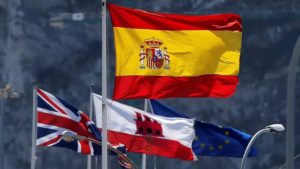Since Elon Musk’s takeover of Twitter in October, the company announced a whirlwind of new policies in an attempt to steer the Bird towards a promising future. However, under Musk’s management, these policies have not changed Twitter’s economic position, nor have they met the approval of Twitter users.
Musk inherited a company which has not turned a profit for eight out of ten years. Prior to the acquisition, the company suffered from debt of just under $6 billion. Yet, instead of turning over a new leaf, Twitter plunged deeper into despair at $13 billion. Through a tweet, Musk acknowledged that the company’s lifetime would come to halt if drastic measures were not implemented. In response, chaos ensued, beginning with the displacement of over 1,000 employees; then with a push for a new subscription service that allowed users to add a blue verification check next to their account. During these rapid changes, many advertisers jumped ship, depriving the platform of its largest generator of revenue.
Musk’s more radical changes stem from his staunch position as a “free speech absolutist.” In an attempt to “free the Bird,” his management removed regulations against the spread of Covid-19 misinformation and dismissed the suspension of accounts that had not formally broken any laws. The action follows a statement in which Musk declared that Twitter could not “become a free-for-all hellscape” and must abide by local laws, but would not generally regulate beyond that degree.
In a similar vein, on December 8, Musk announced Twitter’s plans to allow its users to identify if their account had been shadowbanned, or suppressed by the platform. Users will also be provided an explanation, and information to appeal against such actions. Shadowbanning limits the spread of hate speech and echoes a familiar standard across social media networks of “freedom of speech, not freedom of reach.” It also showcases an attempt to reach a balance between Twitter’s approach to free speech and the moderation of offensive content.
However, in a confusing shift, Twitter later disbanded its Trust and Safety Council, adding that it wasn’t the right structure to shepherd Twitter into a new phase of product and policy development. The former Council brought together volunteers from external non-profit organizations, to advise Twitter on online safety and best-practice methods against abusive content; specifically targeted at minors and hate speech. Questions as to how far Twitter is willing to go to promote its absolute free speech agenda arose when it disposed of account suspensions of previously problematic users. For example, former U.S. president Donald Trump, as well as approximately 12,000 other accounts tied to white nationalists, neo-Nazis, extreme right-wing activists, conspiracy theorists, and general community trolls. Researchers have noted an upsurge of casual hate speech on the platform, causing multiple users to abandon their accounts.
These upsets could not come at a worse time for the platform as a new EU regulation, the Digital Services Act, will begin enforcement against large social media companies in 2023. Thierry Breton, the E.U.’s commissioner of the internal market released a statement at the end of November, communicating that, “Twitter will have to implement transparent user policies, significantly reinforce content moderation and protect freedom of speech, tackle disinformation with resolve, and limit targeted advertising.” Though Musk commented that both he and Breton had similar views for the platform’s future, December’s events beg to differ.
As the month progressed, Twitter launched new suspension policies. They started with a more stringent stance against doxxing, the act of sharing another’s identifying information. This policy seems to be triggered by Twitter accounts dedicated to sharing the locations of celebrity and politician private jets, using publicly available data; including one under the name @ElonJet. As a self-declared “free-speech absolutist,” Musk announced that his stance on free speech extended to these accounts at the beginning of his tenure. He has since redacted his statement, by suspending and later permanently shutting down @ElonJet and all similar accounts. The anti-doxxing policy aims to avert personal risk from live location sharing.
Twitter’s account suspension spree continued that week with the suspension of several journalist accounts from the New York Times, CNN, The Washington Post, and Mashable. Twitter did not provide an explanation for these suspensions, though Musk hinted that the actions adhered to Twitter’s new no-doxxing terms. Before the suspension, a few of the journalists added tweets that linked to the @ElonJet account on different platforms.
Twitter then proceeded to remove accounts that linked to rival social media platforms, including Facebook, Instagram, Mastodon, Truth Social, Tribel, Nostr, and Post. Twitter announced it would no longer allow “free promotion of certain social media platforms” on its site. It updated its site on December 15 to reflect the new policy, but all mentions of these updates were deleted on December 18, and the previous week’s suspended accounts were reinstated. The platform communicated the policy’s modification through Musk’s account, “Policy will be adjusted to suspending accounts only when that account’s primary purpose is promotion of competitors, which essentially falls under the no spam rule.” The CEO then apologized and promised that any major regulatory decisions would be polled on the platform before moving forward. Former CEO Jack Dorsey, who had previously stated that Musk was “the singular solution I trust,” tweeted that the suspension of promotional accounts, “doesn’t make sense”.
These jumbled developments under Twitter’s new management left the internet questioning whether Musk’s leadership was really best for the platform. In accordance, Musk surprised users by publishing a poll on his account the day of the reinstatement, asking followers whether he should step down as CEO. Fifty-eight percent of respondents voted “yes”. Though Musk assured users he would abide by the poll’s results, he has yet to do so as no replacement has been found for the position.







